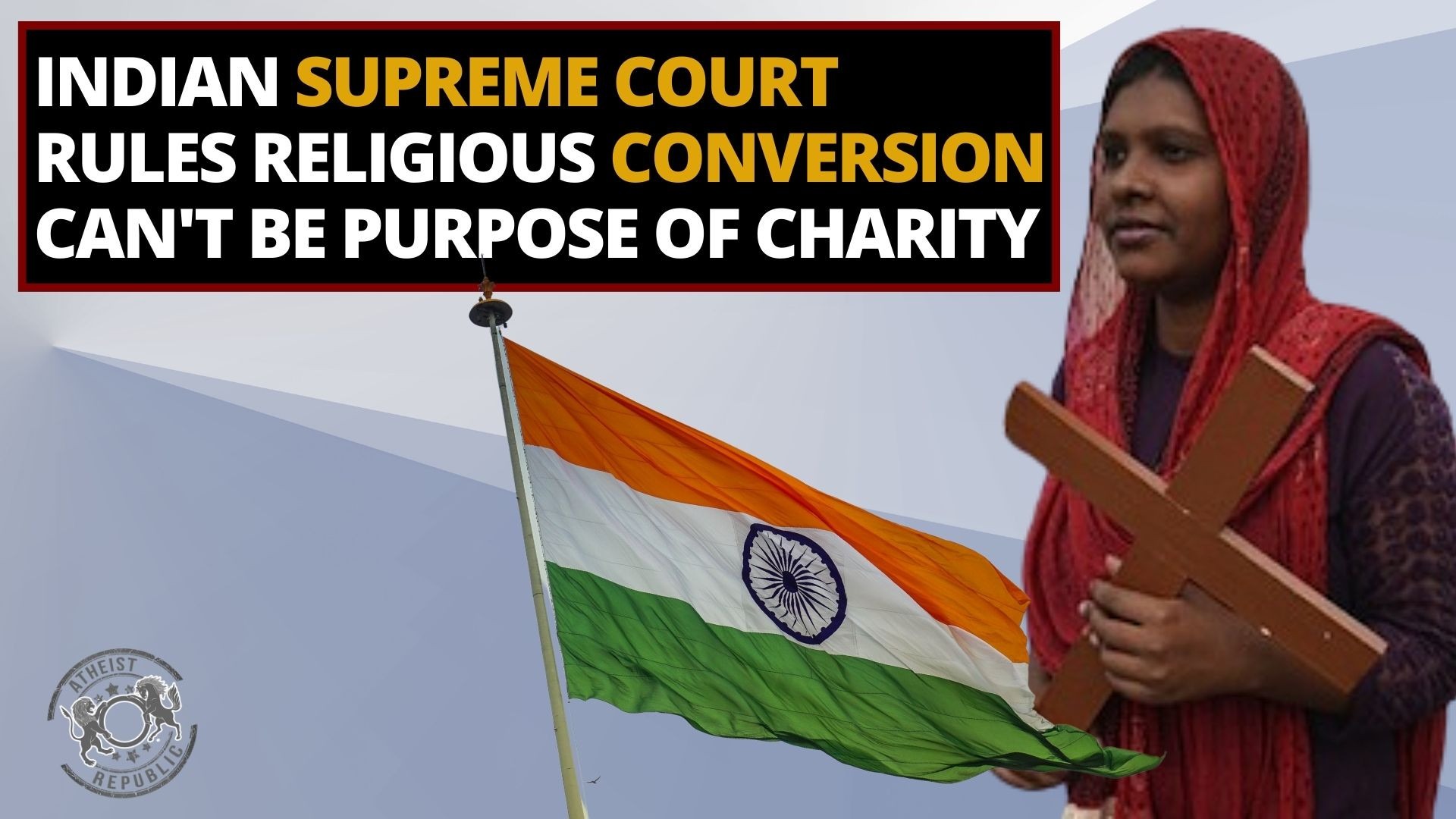
The Supreme Court of India calls charity with the intention of religious conversion dangerous.
There is nothing wrong with charity by religious groups, but the same cannot be said if the purpose behind that act is for religious conversion, said The Supreme Court on December 5.
The division bench of Justice M.R. Shah and Justice C.T. Ravikumar approved the petition of Bharatiya Janata Party (BJP) leader Ashwini Upadhyay, which moved the court against deceitful religious conversion and rejected all kinds of interventions. The matter at hand is "very serious," the bench insisted while stating how conversion by offering food, grains, and medicine is wrong and alluring is dangerous.
"If you believe that particular persons should be helped, help them, but it can't be for conversion. Allurement is very dangerous. It is a very serious issue and is against the basic structure of our constitution. Everyone who stays in India will have to act as per the culture of India," the bench said. "The purpose of charity should not be conversion; every charity or good work is welcome, but what is required to be considered is the intention."
Upon taking directions from the court, petitioner Upadhyay then urged the Union and the state governments to take strict actions against deceitful religious conversions, which often use "intimidation, threatening, deceivingly luring through gifts and monetary benefits."
Supreme Court says forced religious conversion is a very serious issue and may affect the security of the country along with the freedom of conscience of citizens as far as religion is concerned. pic.twitter.com/rHV2qJEhgz
— ANI (@ANI) November 14, 2022
The Solicitor General of India, Tushar Mehta, said to the court that the government was gathering intel from the states where cases of coerced religious conversions surfaced and the steps to control such activities are soon to be taken. Mehta sought a week from the court to present the necessary information. The court ordered the parties involved to mention it before the Chief Justice of India.
Many states already have stringent anti-conversion laws, especially in BJP-ruled states, to stop coerced religious conversions, said the government's lawyer to the court. "Neutral committees" formed based on such laws determine whether religious conversions were "in lieu of grains, medicines or whether it is a real religious change of heart," he added.
However, Upadhyay's petition was countered by some who wanted it to get rejected using the point that another branch of the high court did not approve his previous petition on the same topic. Sanjay Hegde, who appeared for the Chattisgarh Christian Forum, was present. Both of them intervened in the matter and rejected the petition.
"This is the fourth identical plea by Upadhyay. SG need not support the petitioner. This is a plea which is heavily exaggerated. No material has been shown that there's an alarming situation. Similar petitions were withdrawn in the past without the liberty to approach again," said lawyer Singh for the Kerala rationalist group.
In response, Mehta said, "Any rationalist should support the petition." The court also said, "We are at the final disposal stage. We will not enter into the question of maintainability."
